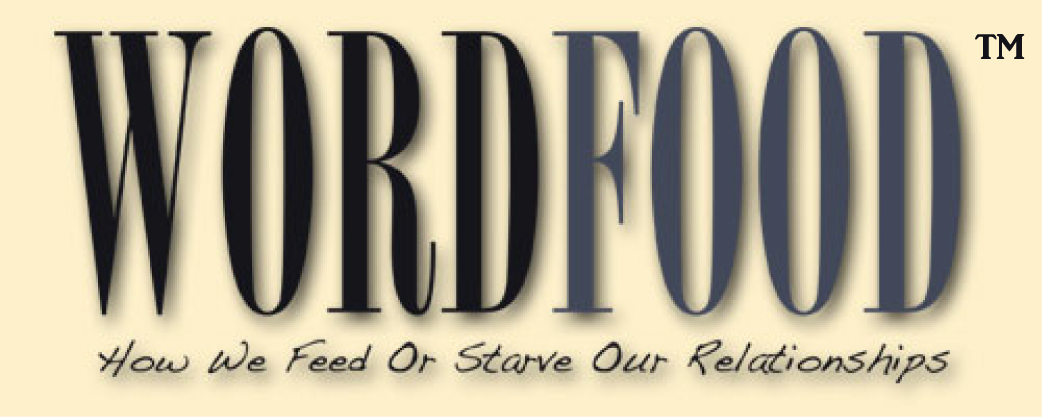Today I went to my chiropractor to get a laser treatment on my knee. The technician who was administering the service asked me what I did for a living and I told her about my book and the idea of WordFood, and how we all put each other on “diets.”
“Well I just stop talking when I get mad,” she proclaimed. “I shut down and clam up.” I told her that this was what I described as the Starvation Diet, where others had to talk to her hand, and she wasn’t forthcoming about what they had done wrong.
As it related to her significant other, I asked her how she expected him to figure out where he had gone wrong or offended her. “He should be able to figure that out!” she exclaimed.
“Well, people can’t read minds,” I said gently. “One of you has to open the door. Either you have to take 100% responsibility for your end and let him know what he did wrong and let him clean it up, or on his end, he can apologize in general and say let’s at least open the door to a conversation here.”
She laughed. “I’d love it if he’d apologize,” she said.
Chances are he goes along in their relationship having no idea he’s done anything wrong in the first place while this lovely woman is fuming, I thought as she labored over my knee.
The Starvation Diet costs both parties with its silence. Someone has to step up to the plate and offer the peace branch. You’re both 100% responsible. Primarily the one holding the silence- because that person alone truly knows what the issue is.
If this sounds like you, perhaps it’s time to be a bit more forthcoming in your communication. Let others know if they have hurt you. You may fear confrontation or conflict as this technician does, but the promise of a more honest and open exchange awaits if you the let sun shine on what’s troubling you. You give up nothing by talking but you may give up everything over time by withholding communication.

